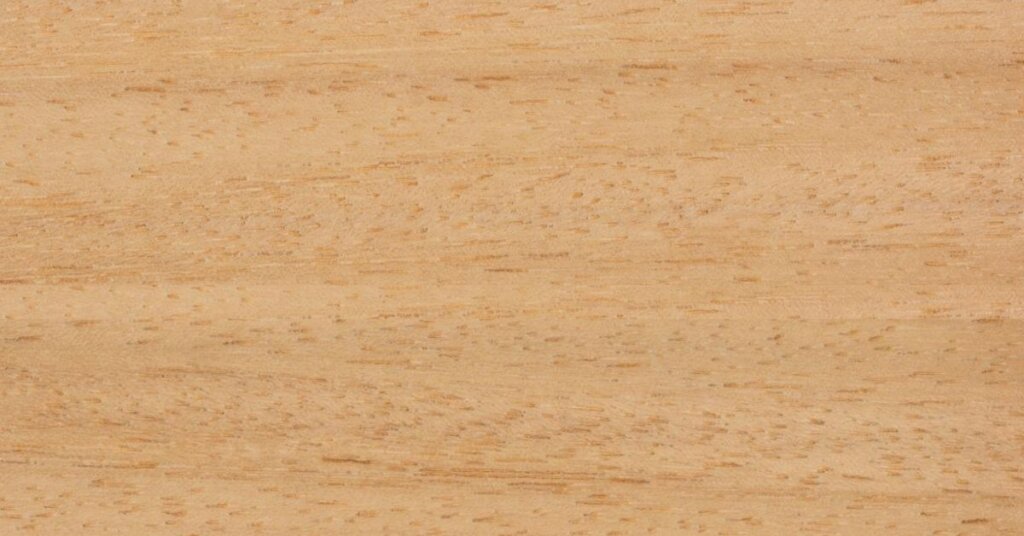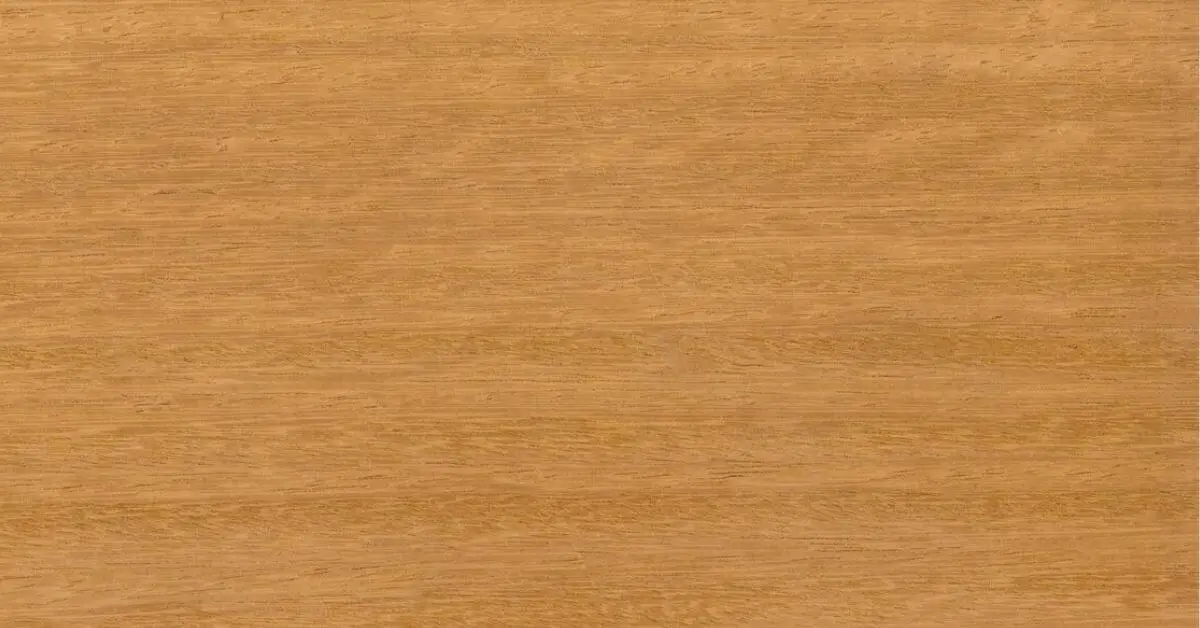We have limited options when we are looking for durable, stable, and naturally rot-resistant wood. Some popular wood species with such properties are Maple, Poplar, Alder, Beech, Ash, Iroko and many others. Iroko holds unique properties that are cheaper than many other hardwoods.
What is Iroko Wood?
Iroko is a durable and stable hardwood that ranges in color from golden brown to brown, color tends to be dark with age. Iroko wood is able to withstand prolonged exposure to moisture because it contains resin that prevents it from absorbing moisture. This is the main reason why it is often used for outdoor applications and is highly demanded for use in decking and construction of boats.
Iroko wood comes from large deciduous hardwood trees, and the Iroko tree grows to an average of 130 feet (50 meters). It is also known as African Teak and is native to tropical regions of Africa.
Here are some of the key properties of iroko wood:
| Scientific Name | Milicia excelsa and M. regia |
| Tree Size | 100-130 ft (30-40 m) tall, 3-5 ft (1-1.5 m) trunk diameter |
| Janka Hardness | 1,260 lbf (5,610 N) |
| Average Dried Weight | 41.2 lbs/ft3 (660 kg/m3) |
| Durability | Very durable |
| Rot resistance | Good |
| Insect resistance | Good |
| Workability | Easy to work with hand tools and machines |
| Finishability | Takes finishes well |
What is Iroko wood used for?
Iroko Wood is commonly used for furniture, veneer, flooring, cabinetry, boatbuilding, and decorative small items. It is naturally rot and insect resistant, so this wood can be used for all outdoor and indoor purposes.
Decking
Iroko wood is primarily used for outdoor decking because it is naturally resistant to decay and moisture and does not require any preservative treatment. Iroko decks can last about 50+ years with low maintenance.
Flooring
Durable and stable Iroko wood is a popular choice for hardwood floors; it not only gives your home a natural look but also withstands everyday wear and tear. Due to the high hardness of the wood, it is less prone to scratches and dents than other woods.
Boatbuilding
Iroko wood is generally known as one of the best boatbuilding materials. Wood is a dense, hard, and strong wood containing natural chemicals that prevent rotting.
Carving
Iroko Wood is a favourite wood for wood carvers as it shapes well with the right tools and gives excellent results after finishing.
Iroko wood Appearance

The heartwood of Iroko Wood can be rich golden to medium brown, and the sapwood is pale yellow, which can be easily distinguished from the heartwood. When freshly cut, it has a warm and reddish hue.
Like most hardwoods, it also turns dark brown over time. The process of color change can be slowed down through staining or sealing.
Iroko wood is strong and durable because it has an interlocked pattern. This pattern also makes it look nice with depth and beauty.
Advantages of Iroko Wood
Aesthetic Appeal
Iroko wood has an attractive appearance. Generally, it has golden or medium brown but changes to a darker brown when exposed to the sunlight. Its fine, interconnected grain pattern adds to its visual appeal.
Durability and Stability
Iroko wood is incredibly durable. Many woodworkers believe that the lifespan of Iroko wood is approximately 100 years for indoor use and 50 to 60 years for outdoor.
Strength
Iroko wood is incredibly strong and dense. Its interlocked grain pattern provides excellent strength, making it a good choice for situations where it needs to withstand heavy loads without bending or warping over time.
Resistance to Insects and Pests
Iroko wood is naturally resistant to insects and pests. Natural oils present in wood which act as a deterrent to insects. Therefore, it does not require treatment for indoor projects.
Ease of Workability
Even though iroko wood is a dense hardwood, it is relatively easy to shape using both the right hand and machine tools. Its density may be challenging for beginners. But overall, it’s a woodworker’s favourite wood.
Low Maintenance
Homeowners prefer furniture that requires minimal maintenance. Iroko is one such wood which requires less maintenance than other hardwoods.
Disadvantages of Iroko Wood
Cost
Compared to some other wood species, Iroko wood can be relatively expensive. Its cost can be a significant drawback for budget-conscious projects. But its price is justified due to its durability/lifespan and other unique features.
Allergic Reactions
Iroko wood has been reported as a sensitizer, and woodworkers may experience common eye and skin irritation problems when working with it.
Availability
Wood is not widely available, and sometimes, it can take a lot of effort to obtain the required size of wood for projects.
Iroko Wood Hardness
Iroko is a medium-density hardwood; the hardness of iroko wood on the Janka scale is 1,260 lbf (5,610 N ), and the average dry weight is 41.2 lb/ft3 (660 kg/m3), which is even higher than popular hardwoods like oak and maple.
High hardness provides durability and strength. Its ability to withstand wear and impact makes it popular for longevity applications such as decks and floors.
Is Iroko Wood Expensive?
Iroko wood is relatively expensive compared to other hardwoods. It is appreciated for its exceptional durability and resistance to decay, insects, and fungal attacks. Iroko trees grow relatively slowly, taking several decades to reach maturity.
Is Iroko Wood Sustainable?
The high demand for Iroko wood has raised concerns about deforestation in its native regions. The Iroko species is listed on the IUCN Red List. Due to the continuous harvesting of M. regia its population has decreased by about 20% in the last Three generations.
We hope that in the next few decades, the population of Iroko will be controlled, and we will be able to use this excellent wood without any worry.
Is Iroko Wood Waterproof?
Iroko wood is not waterproof, but it is highly water resistant. If you plan to use Iroko wood for a purpose that is exposed to moisture/water most of the time, such as a boat, you should seal it before using it.
Iroko wood contains large amounts of natural oils/resins. These resins act as waterproofing for the wood, making it naturally resistant to moisture absorption.
Is there an Alternative to Iroko Wood?
While Iroko wood has unique characteristics, teak and mahogany also have similar properties as Iroko. Which also provides durability and aesthetic appeal.
Can Iroko Wood be Stained or Finished?
Yes, Iroko wood can be stained or finished to achieve the desired color and appearance, although many woodworkers prefer to let its natural beauty shine through.
Is Iroko wood good for outdoor use?
Yes, Iroko wood is resistant to moisture and extreme weather, making it an excellent choice for outdoor projects like decking and furniture.

